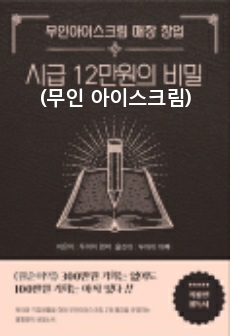* 본 문서는 배포용으로 복사 및 편집이 불가합니다.
서지정보
ㆍ발행기관 : 한국교육학회
ㆍ수록지정보 : 교육학연구 / 12권 / 2호
ㆍ저자명 : 李敦熙
ㆍ저자명 : 李敦熙
목차
ⅠⅡ
Ⅲ
參考文獻
ABSTRACT
영어 초록
To begin with, a question may be raised as to whether it is possible to distinguish between moral education and non-moral education. Education presupposes as an axiom a kind of change in something human whatever it may be. An educative change is to be attempted as developing a certain desirable quality of the person, that is, to change the person to be desirable by a certain criterion whatever. Then, what is attempted should include moral qualities among others, which means that all the educational activities, by their nature, should be characterized by the fact that moral education is built in them.But a factual question may be asked of whether the sum total of educational values presumed in all the educational subject-matters-mathematics, language, social studies, arts, and the like-can represent the very quality of the type of person desired. If it is not, the principle ruling over the organization of subject-matters should meet the condition sufficient to bring about that type of person, whereas the values presumed in all the subject-matters are but necessary to that purpose indicated. If those values mentioned above and the principle under consideration together do not suffice the notion that education is for that desirable type of person, moral education should be provided either to be an autonomous subject-matter or to be supplemented by a set of additional objectives. But the question requests an account of what moral education is and what it is about.
The author argues that moral education is a kind of process to help children develop rules or principles controlling their conduct and perform accordingly, and that it has three major tasks which include (1) the formation of good moral beliefs, (2) the formation of good habits, and (3) the integration of character. The concept of character, together with its definition, represents as an inclusive explanatory device what is called the whole person that is conceived to be admittedly vague.
Those tasks mentioned above cannot be neatly distinguished from the tasks of non-moral activities, since education presupposes a certain type of person desirable by a certain criterion which implies moral significance. For some practical purposes, specific educational activities that provide children with an exclusively moral training may be necessitated. In its cognitive aspect ( the formation of beliefs), the program should center its function upon the heightening of judgmental capability rather than the mere inculcation of customary morals. Argued have been that customary morals (or norms) are conflicting each other in a concrete problematic situation, and that customary morals are not to be taken as values themselves worthwhile to be pursued, but to be valuable methods and sources by which one may be helped in solving the moral problems. That is to say, they are hypothetical ideas available for our present moral life.
In its habituation aspect, the school program must be so limited that the child's moral life as a whole cannot expose itself to the moral teacher. But it would help children develop their moral habits by letting them recognize that morality is signified by their actual performance of acts in accordance with their beliefs and by having them habituate acts with some selected moral beliefs.
Lastly, for the integration of character children may be helped by imitating moral models, which include, among many teachers characters in movies, biographies and the like.
The quality of moral education depends upon all the system of educational activities in which children are nurtured, not simply upon the specific program called “moral education” as a subject-matter.
참고 자료
없음태그
"교육학연구"의 다른 논문
 敎育自治制의 立法化 過程8페이지
敎育自治制의 立法化 過程8페이지 栗谷 李珥의 敎育理念12페이지
栗谷 李珥의 敎育理念12페이지 孟子의 敎育思想13페이지
孟子의 敎育思想13페이지 學校組織硏究를 위한 課業動機의 槪念 模型分析14페이지
學校組織硏究를 위한 課業動機의 槪念 模型分析14페이지 朝鮮王朝 經筵의 敎育史的 硏究12페이지
朝鮮王朝 經筵의 敎育史的 硏究12페이지 道德的 主體性의 形成8페이지
道德的 主體性의 形成8페이지 道德과 敎育4페이지
道德과 敎育4페이지





















